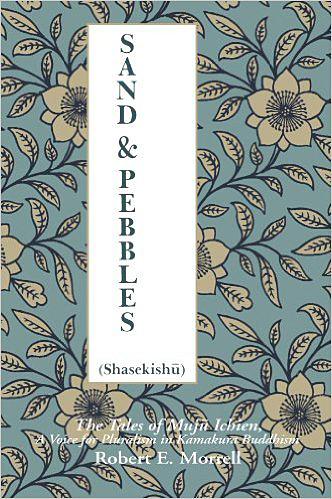Robert E. Morrell, who taught Japanese literature and Buddhism at Washington University in St. Louis for 34 years, died May 11, 2016, in St. Louis after a brief illness. Sachiko Kaneko Morrell, his wife of more than 60 years, was by his side. Morrell was 86.

Born Jan. 19, 1930, in Johnstown, Pa., Morrell earned a bachelor’s degree in music from Duquesne University in Pittsburgh in 1952. He served in the U.S. Navy during the Korean War and, for a time, considered the priesthood. But in 1954 he traveled to Japan, married Sachiko, and soon thereafter entered the University of Chicago philosophy program, earning a master’s degree in 1959.
Morrell continued his studies at Stanford, completing a doctorate in Japanese language and literature in 1968. At Washington University, he joined the faculty of Arts & Sciences in 1965; was appointed associate professor in 1972; and full professor in 1987. He was named emeritus professor in 1999.
An authority on Buddhist thought in classical Japanese literature, Morrell was author of “Early Kamakura Buddhism: A Minority Report” (1987), which focused on smaller and frequently overlooked Buddhist sects of the Kamakura period; and “Sand and Pebbles: The Tales of Muju Ichien, A Voice for Pluralism in Kamakura Buddhism” (1985), the first complete English rendering of Muju’s “Shasekishu” parables.
In 2006, he and Sachiko Morrell — who worked in the university’s East Asian Library for 30 years — co-authored “Zen Sanctuary of Purple Robes: Japan’s Tōkeiji Convent Since 1285.” The book traces the history of Tōkeiji, the famous Rinzai Zen convent, from its founding, through the Edo and Meiji periods, to the present day.
 Robert Morrell also co-authored, with Earl Miner and Hiroko Odagiri, “The Princeton Companion to Classical Japanese Literature” (1985); and, with J. Thomas Rimer, the “Guide to Japanese Poetry” (1975/84). He wrote numerous journal articles and book chapters, contributing to the classroom staple “Sources of Japanese Tradition: From Earliest Times to 1600” (2001), as well as “Religions of Japan in Practice” (1999) and “Great thinkers of the Eastern World” (1995), among others.
Robert Morrell also co-authored, with Earl Miner and Hiroko Odagiri, “The Princeton Companion to Classical Japanese Literature” (1985); and, with J. Thomas Rimer, the “Guide to Japanese Poetry” (1975/84). He wrote numerous journal articles and book chapters, contributing to the classroom staple “Sources of Japanese Tradition: From Earliest Times to 1600” (2001), as well as “Religions of Japan in Practice” (1999) and “Great thinkers of the Eastern World” (1995), among others.
Longtime colleague Rebecca Copeland, chair of East Asian Languages and Cultures in Arts & Sciences, fondly recalled Morrell and his wife performing as part of an informal musical quartet, as well as his proficiency with computers and digital media. “In many respects ‘computer’ was Bob’s third language, alongside English and Japanese,” she said. But more importantly, “in his quiet, unassuming way, Bob took the time to invest something of himself in his students. I’ve seen him spend hours discussing Buddhist issues, helping students to become aware of new ideas and ways of thinking.
“He nurtured and inspired several generations of Asian scholars.”
Morrell is survived by his wife, Sachiko Morrell, and their daughter, Audrey Morrell. A memorial service will be held on campus later this summer. Remembrances can be sent care of the Department of East Asian Languages and Cultures, Campus Box 1111, Washington University, One Brookings Drive, St. Louis, Mo., 63130-4899, or ealc@wustl.edu.